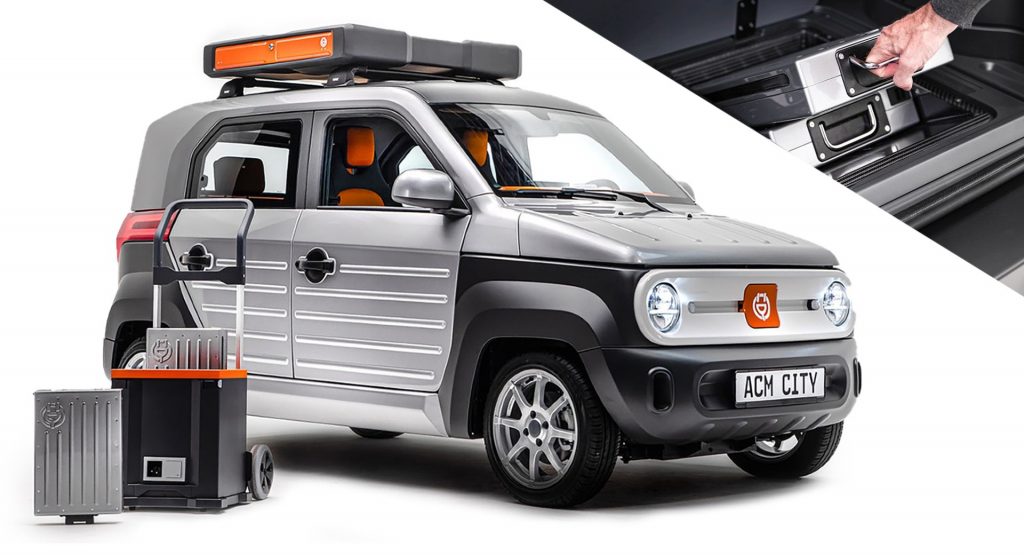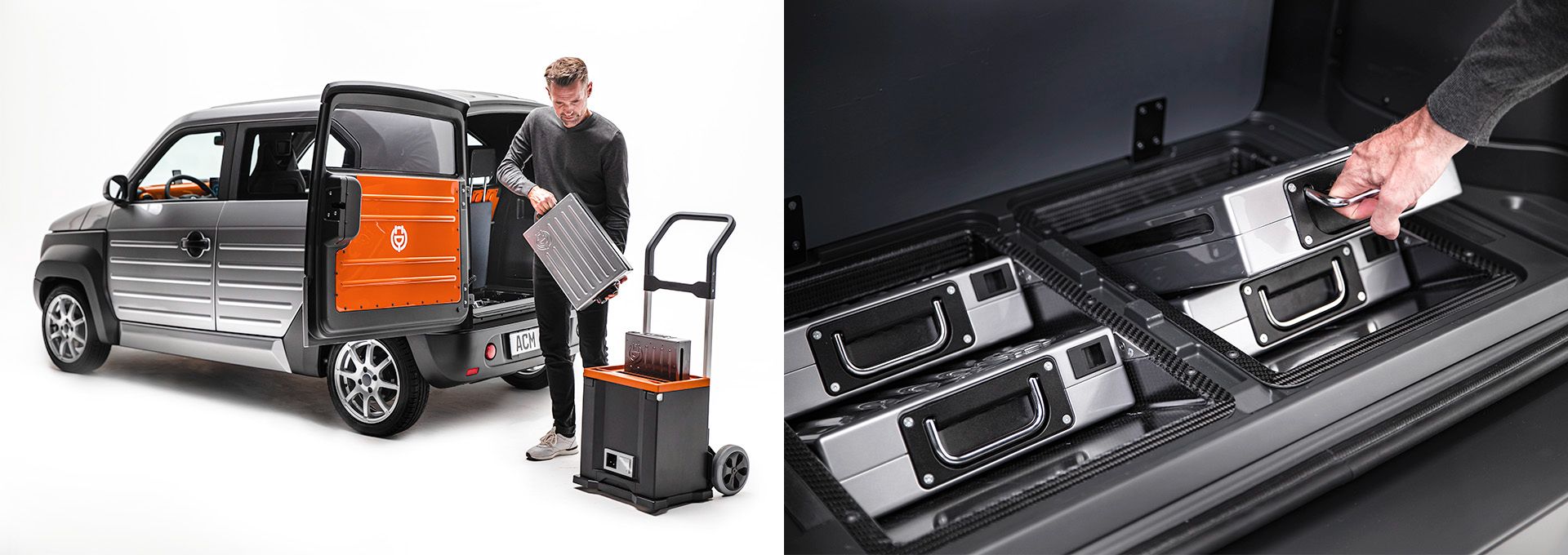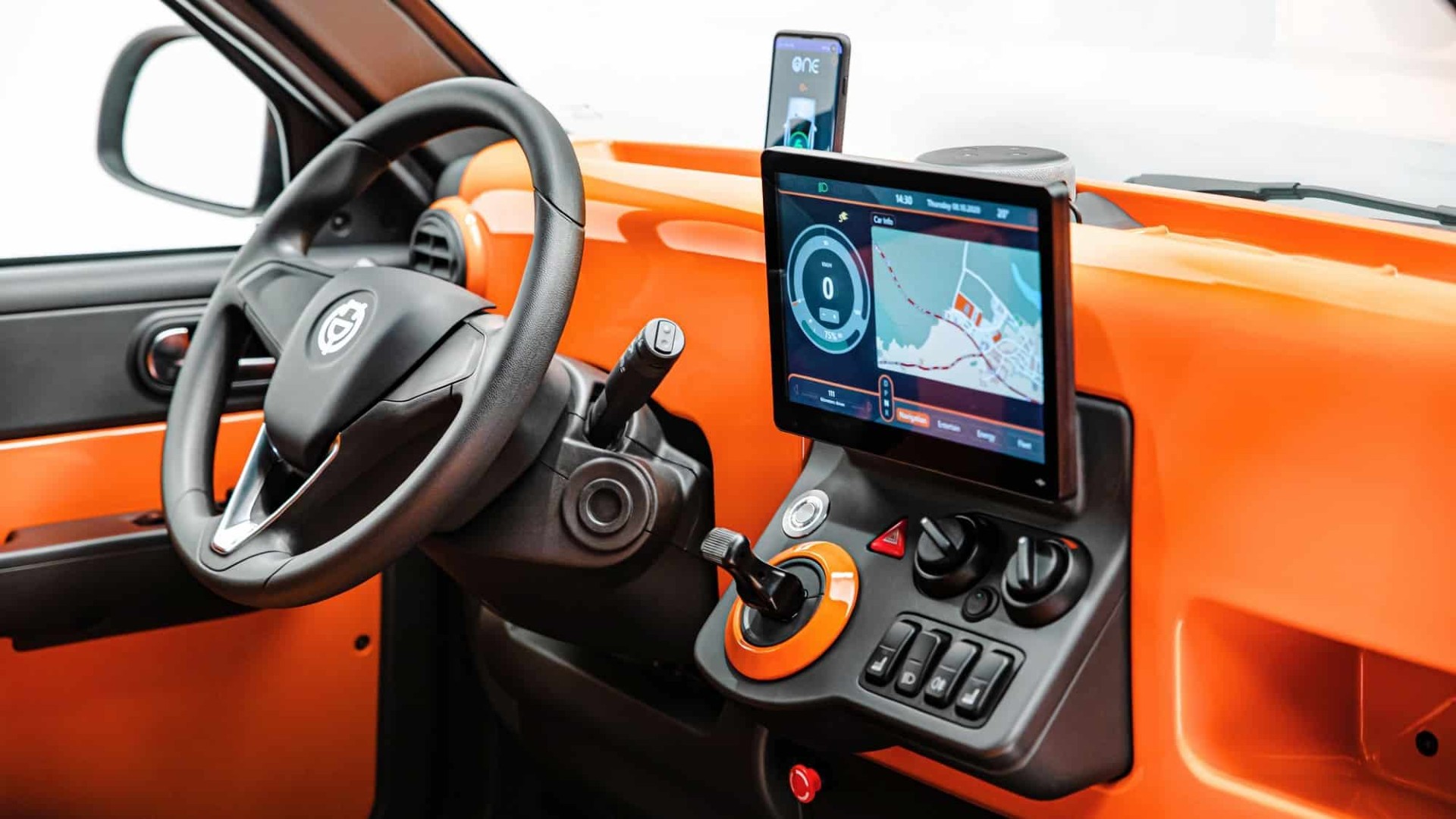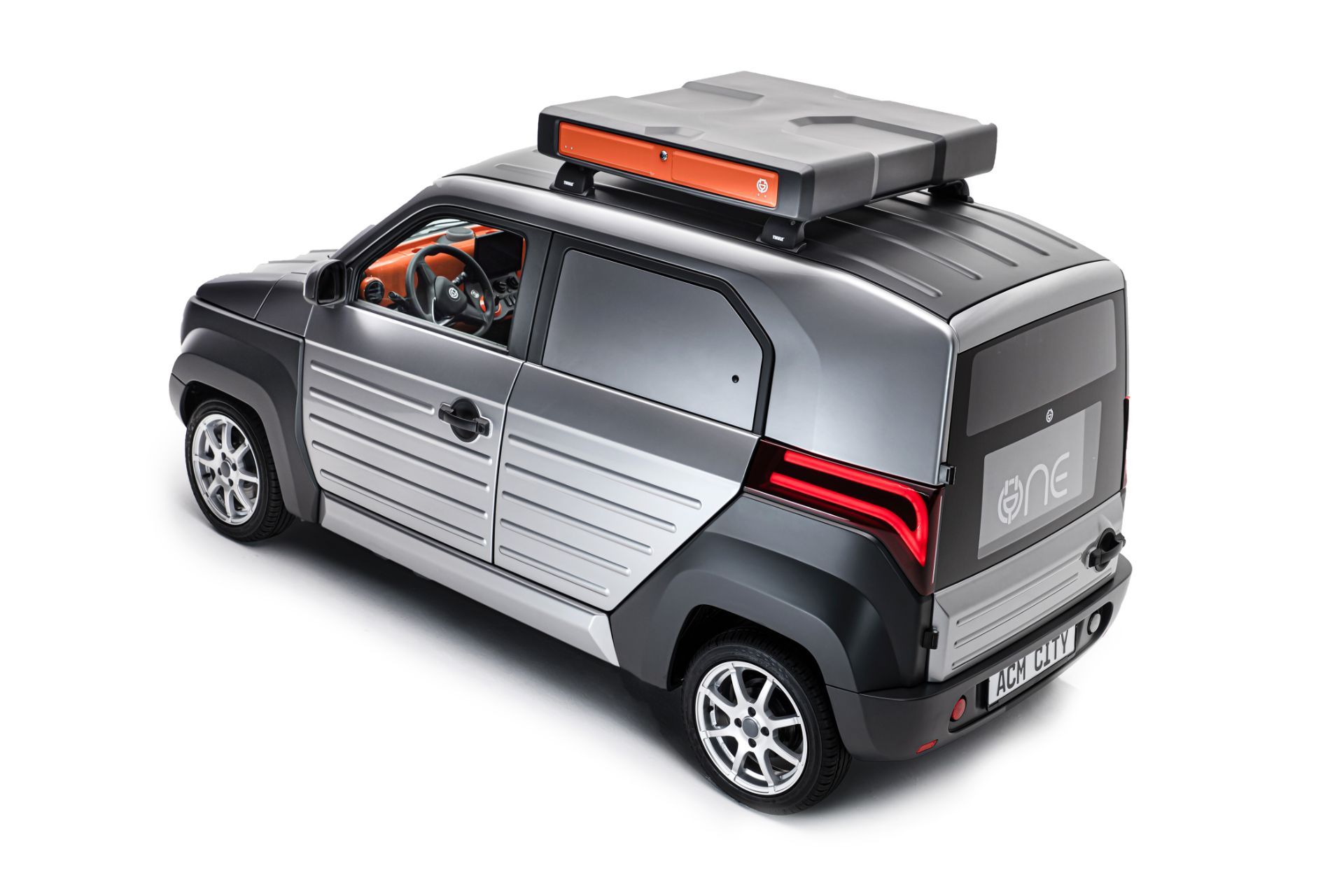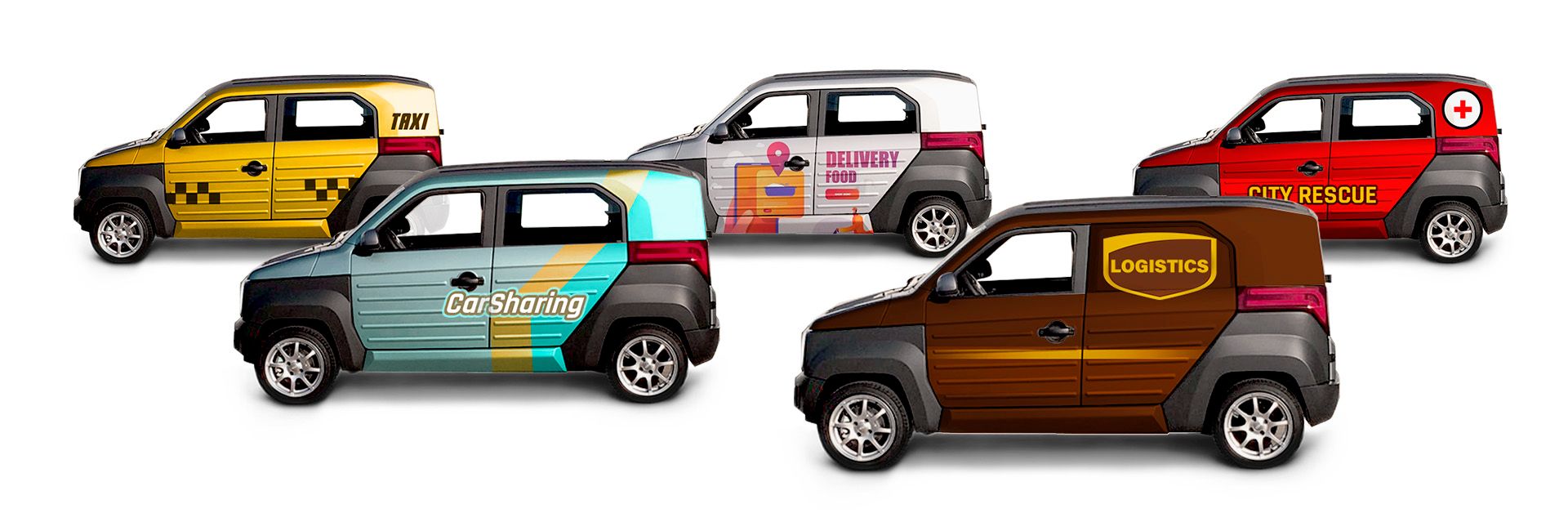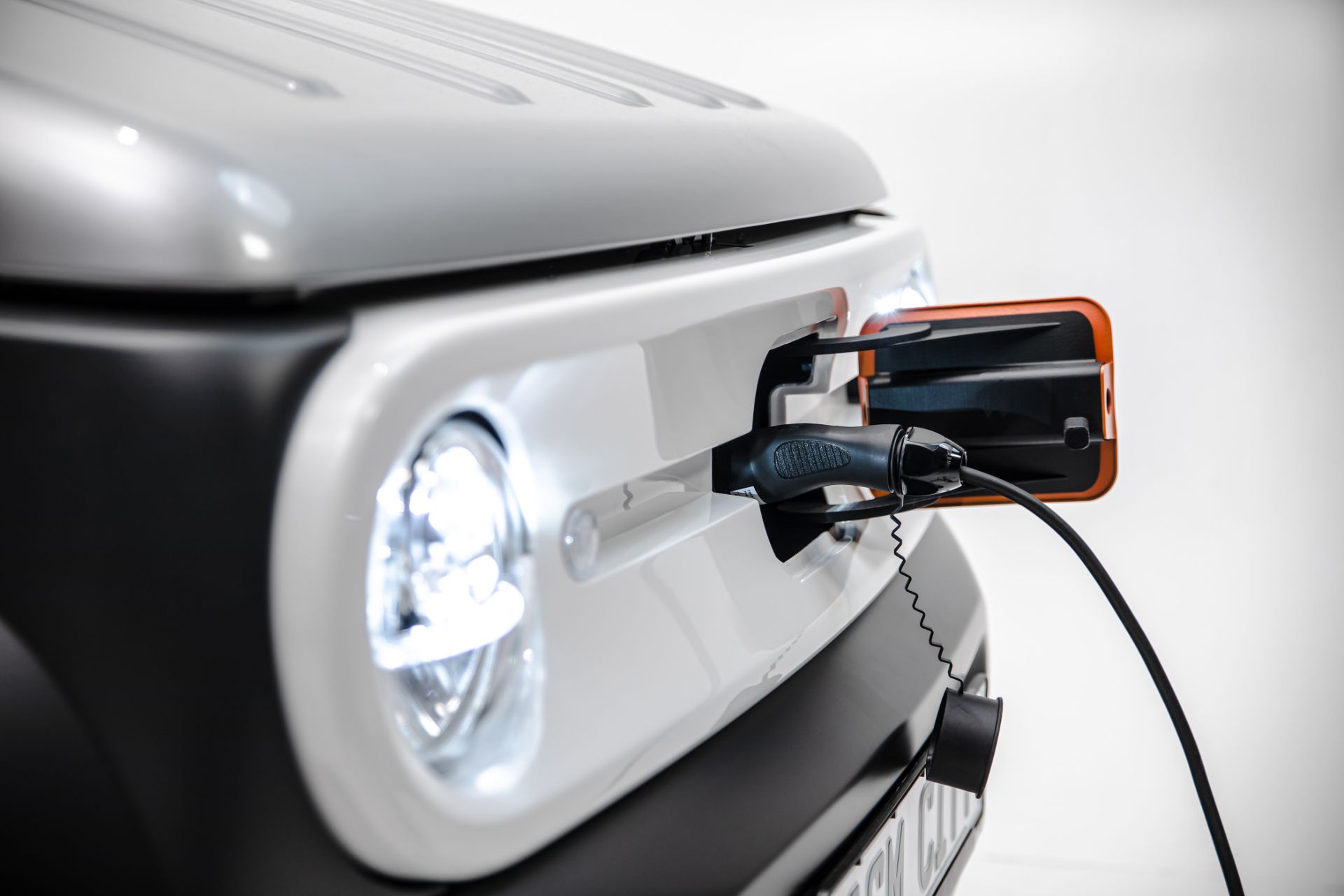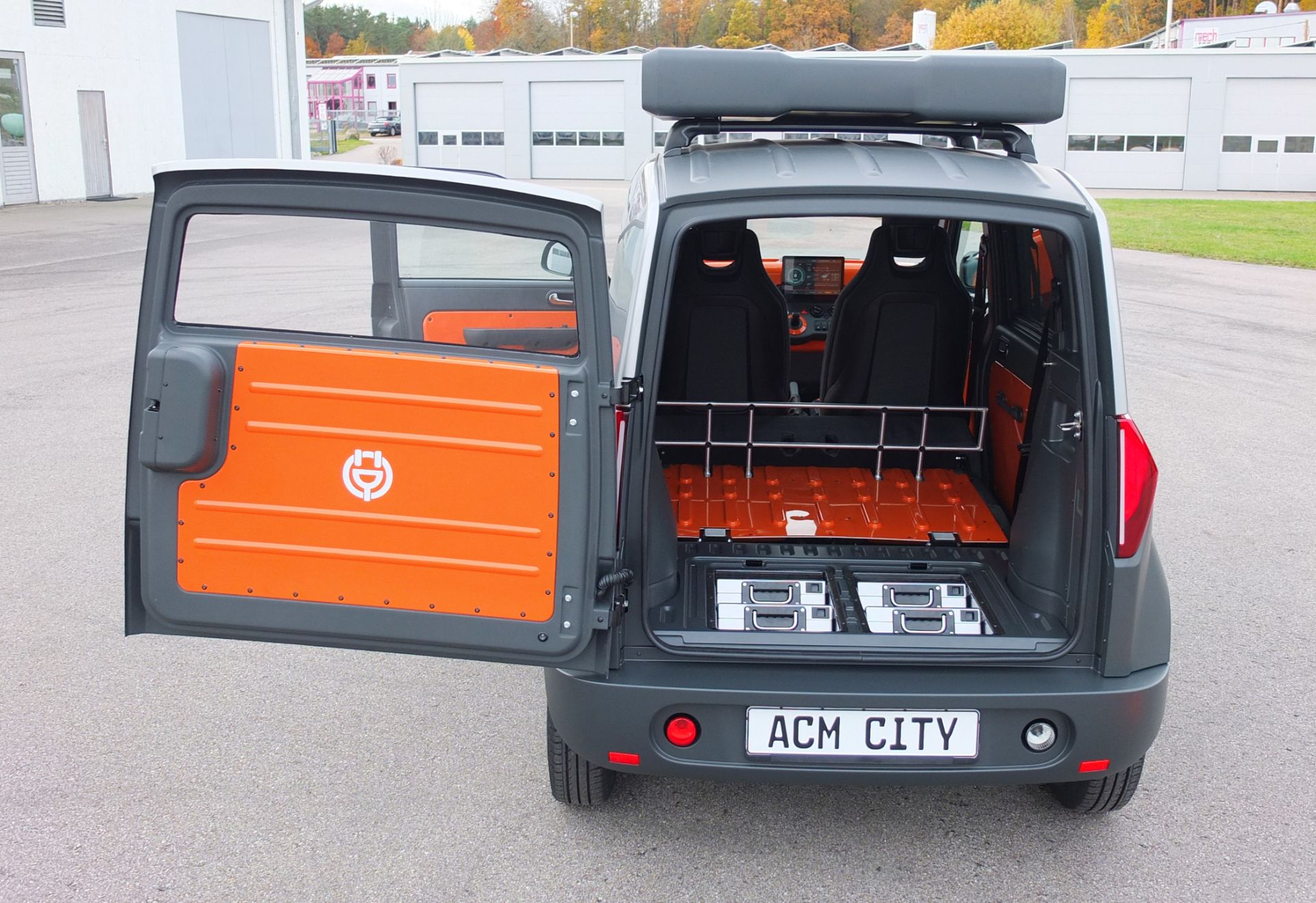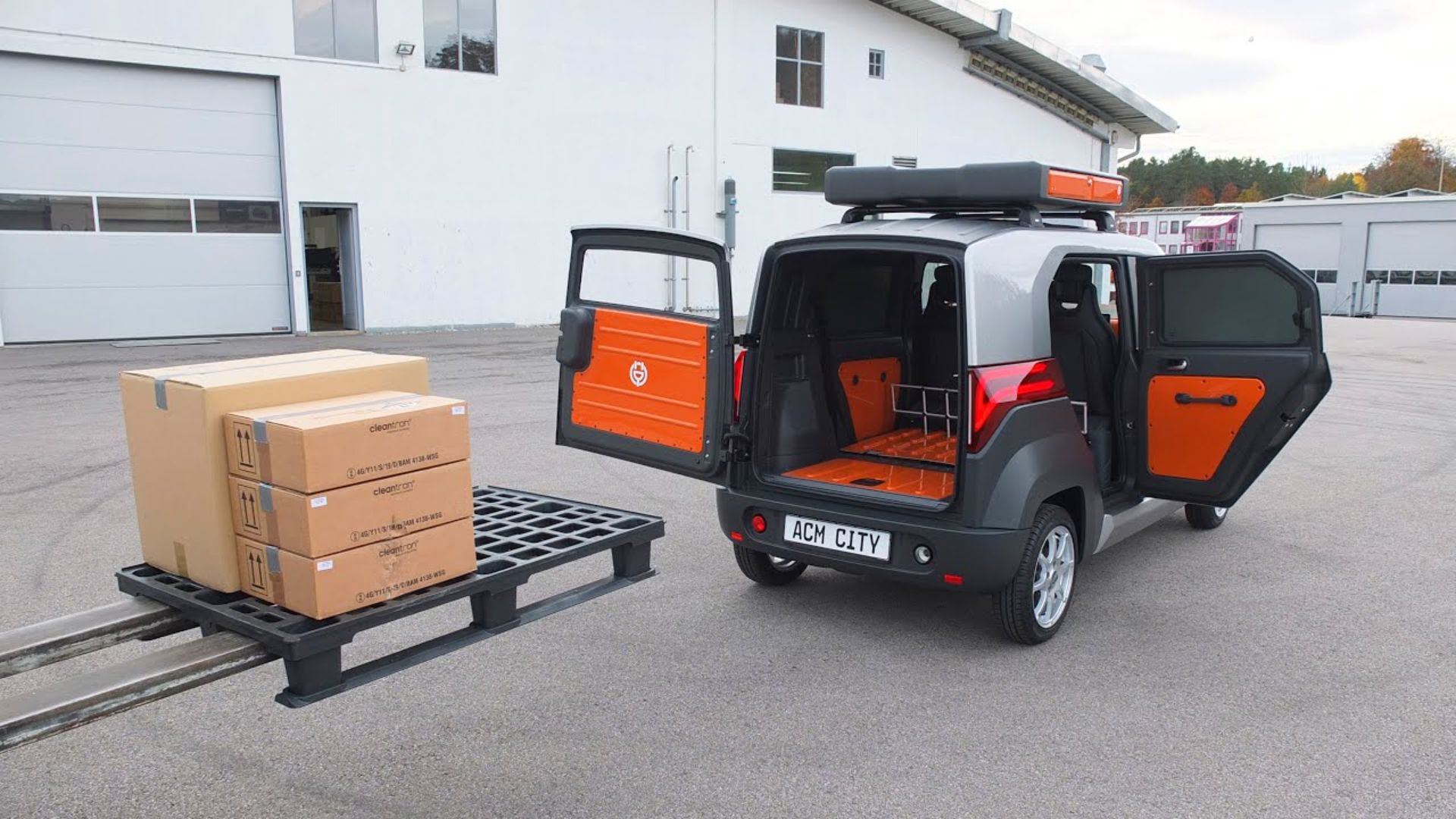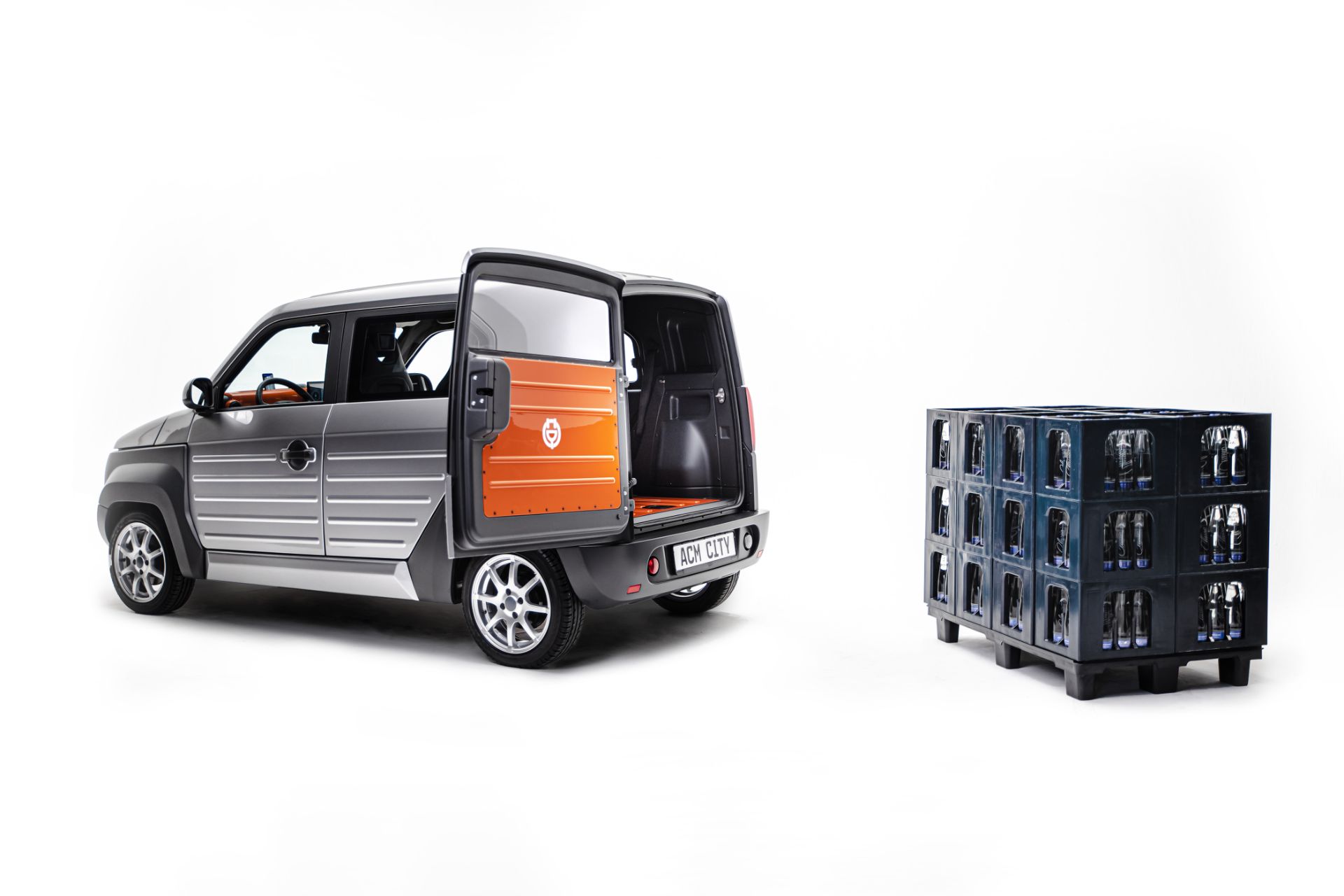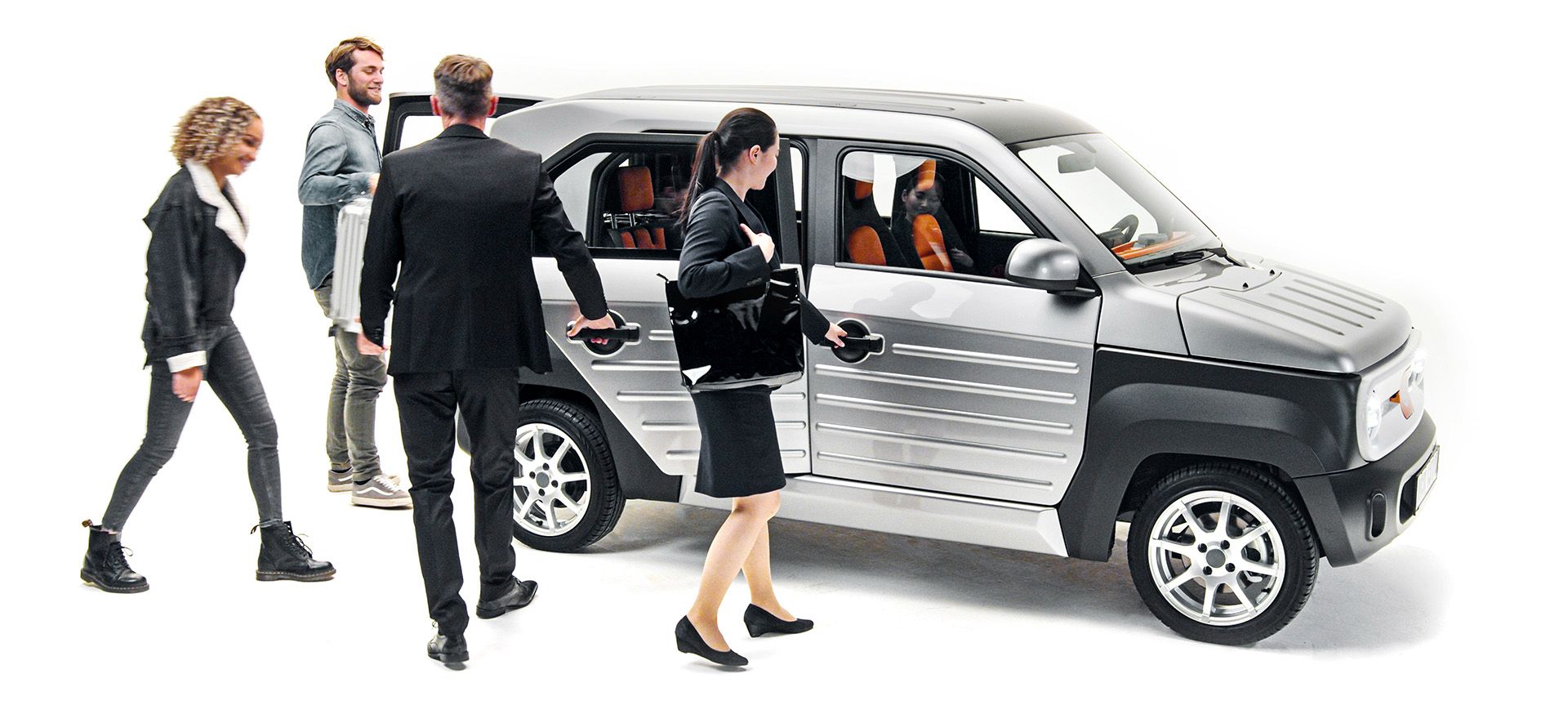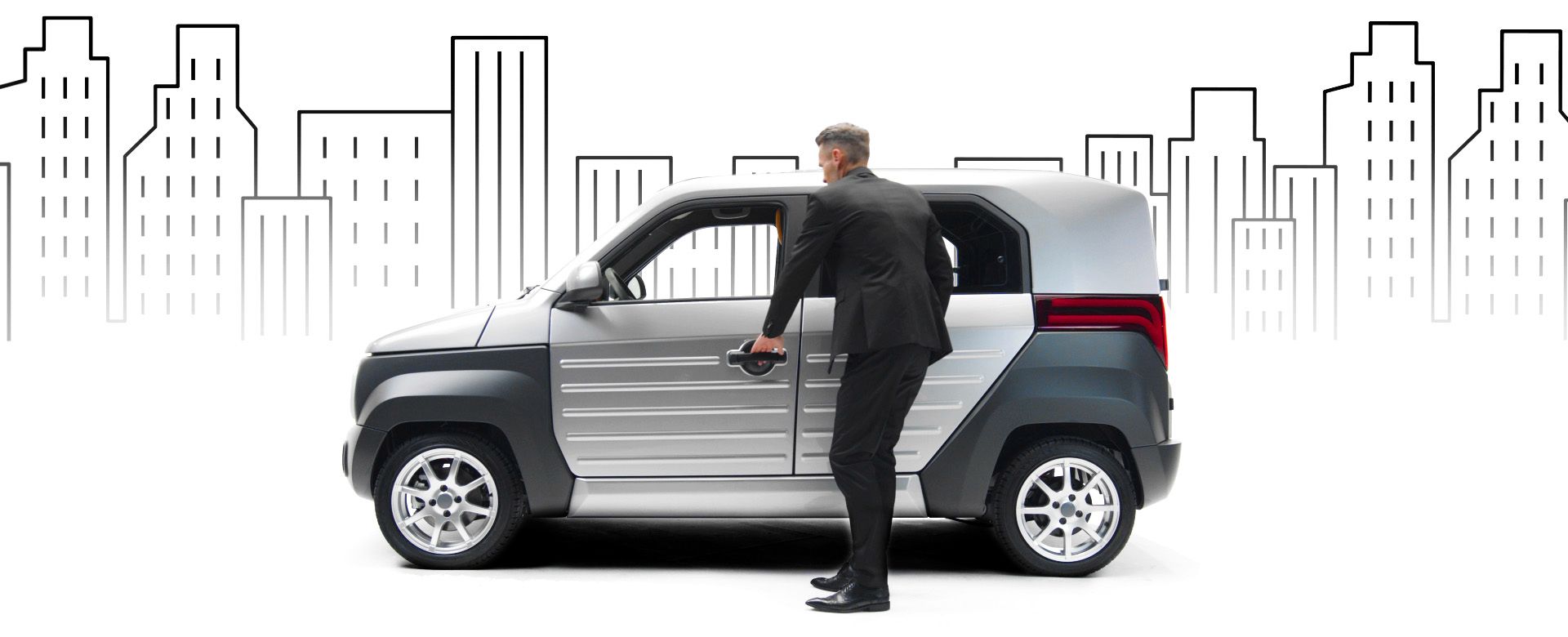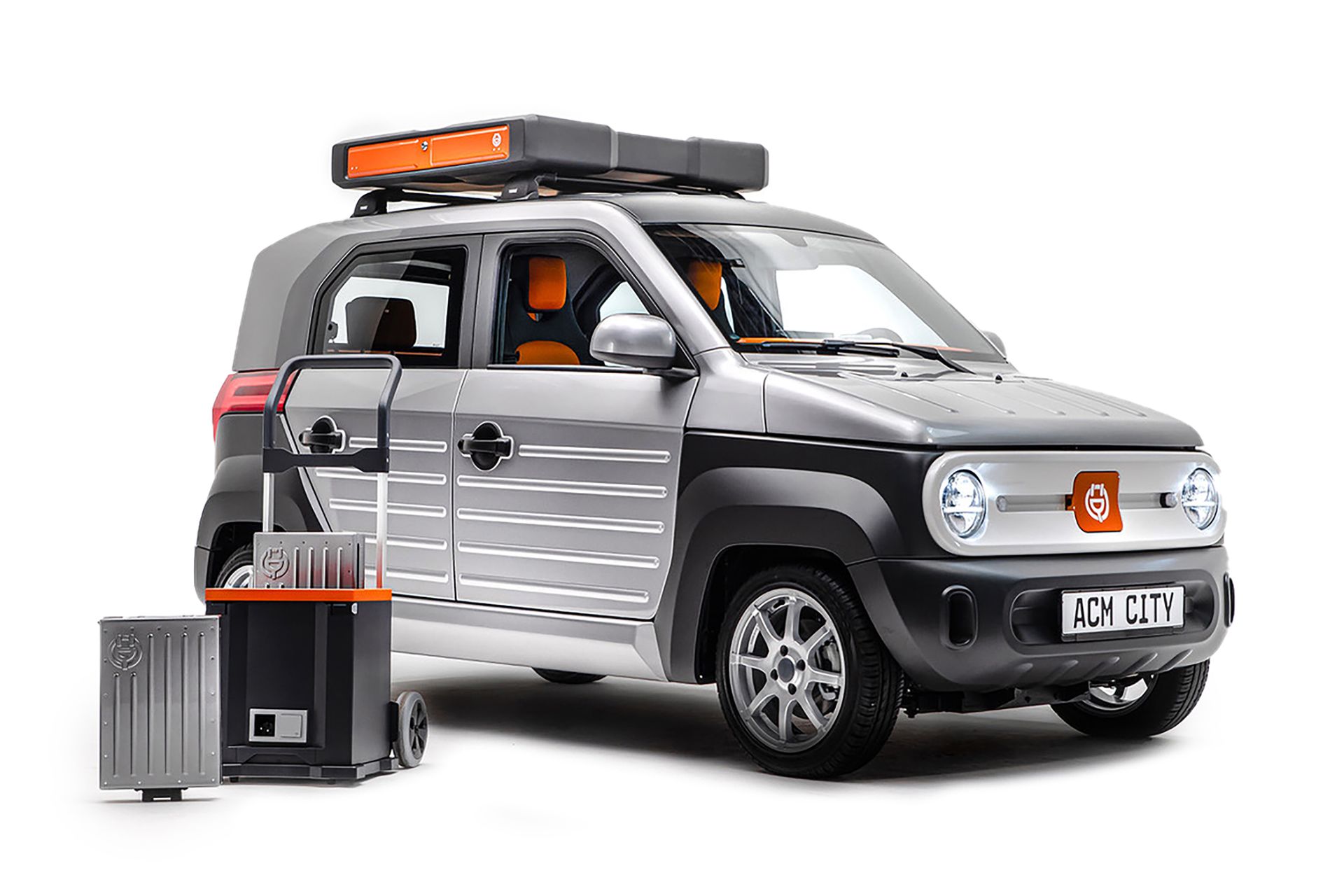Car sharing took a hit due to the pandemic but it seems that automakers still believe that this is the future judging from cars like Citroën Ami or the Mobilize EZ-1. The German startup ACM (Adaptive City Mobility) has launched its own EV proposal which is called the City One.
The model was developed with the help of Magna and has four doors, a modular cabin, and replaceable batteries for less downtime when used in car-sharing fleets.
See Also: 2021 Dacia Spring Electric Debuts As The Logan Of EVs
If you are not familiar with ACM, the company was founded in 2013 and has many executives coming from large automakers like BMW, Audi, and Opel. The initial funding came from the German government while additional funds were sourced from private investors in China, Germany, and Sweden.
The first vehicles started testing in 2017 in prototype form. The final design is ready to be unveiled at the IAA Mobility. The company claims that initial production will commence in 2023, while mass production is scheduled for 2024.
This Thing Is Tiny, Really Tiny
The ACM City One is a compact EV measuring 3.60 x 1.65 x 1.67 m (141.7 x 64.9 x 65.7 inches) and weighing 950 kg (2,094 pounds). This makes it a regular A-Segment car and not a heavy quadricycle such as the lighter Renault Twizy and Citroën Ami. While we are not sure about the classification of the vehicle at this point, it is possible that ACM will have to comply with crash testing and safety regulations which is not necessary for heavy quadricycles.
See Also: Renault Debuts New Mobilize Brand With Tiny EZ-1 Electric Two Seater
The vehicle is powered by an electric motor producing 34 hp (25 kW / 34 PS) which allows a top speed of 110 km/h (68 mph). What is interesting is the 24 kWh battery, a part of which is interchangeable. Four suitcases with a capacity of 2.5 kWh each are located under the boot and can be replaced with fully charged units in 3 minutes.
You Can Swap Batteries Too
Battery-swapping allows the car to stay on the move for longer periods of time, without the need for charging. When the work is over, a full charge will take 5 hours from a charger and up to 8 hours from a home plug. Additionally, there is an optional roof box carrying more batteries which increases the maximum range from the standard 240 km (149 miles) up to 360 km (224 miles).
Inside there is a spartan dashboard with a large touchscreen, round vents, a few physical controls arranged on the center console, and several storage compartments. The cabin can accommodate up to five adults, with a rather large boot of 400 lt (14 cubic feet).
By folding the rear seats, the car transforms into a commercial vehicle with a flat loading area, a metal partition, an impressive 1,450 lt (51.2 cubic feet) of space, and a maximum cargo weight of 380 kg (838 pounds). If you use the City One as a van, panels can be added to the rear windows and a 40-inch screen on the tailgate for displaying advertisements while on the go.
The City One is targeting fleet buyers since it can be used as a rental car, taxi, or commercial vehicle. However, the company is also planning to offer it to private buyers, with pricing ranging from €10,000-15,000 ($11,750-17,627) depending on the equipment. This would make it a direct competitor to the Dacia Spring which is one of the cheapest electric cars in the world.
ACM claims that they have already secured more than 208,000 orders for the City One with a potential value exceeding 3 billion euros, even though production won’t start before 2023.




